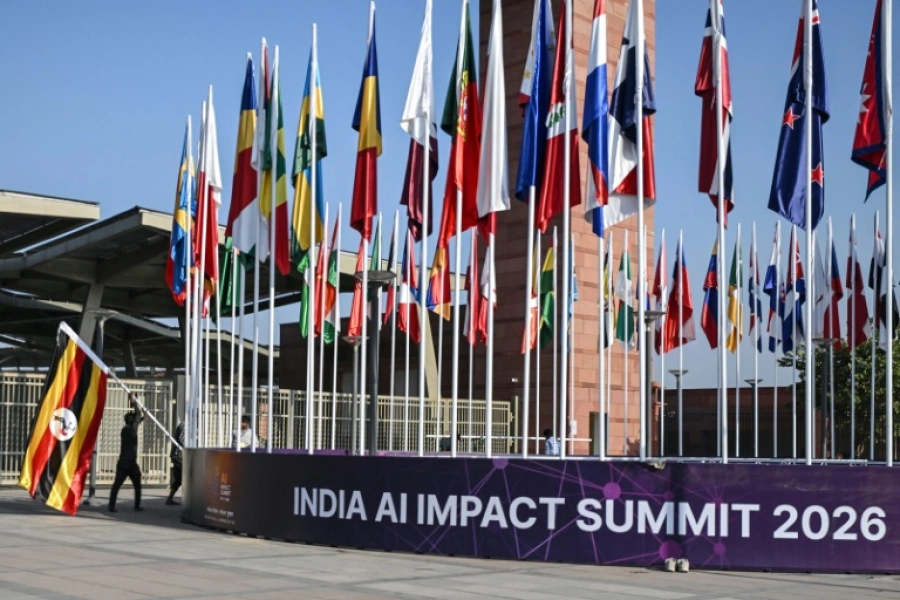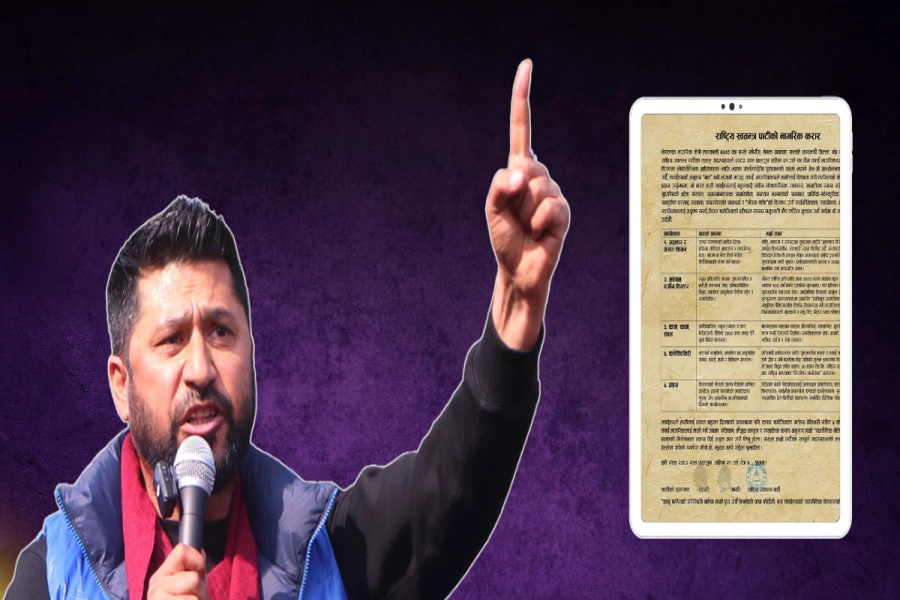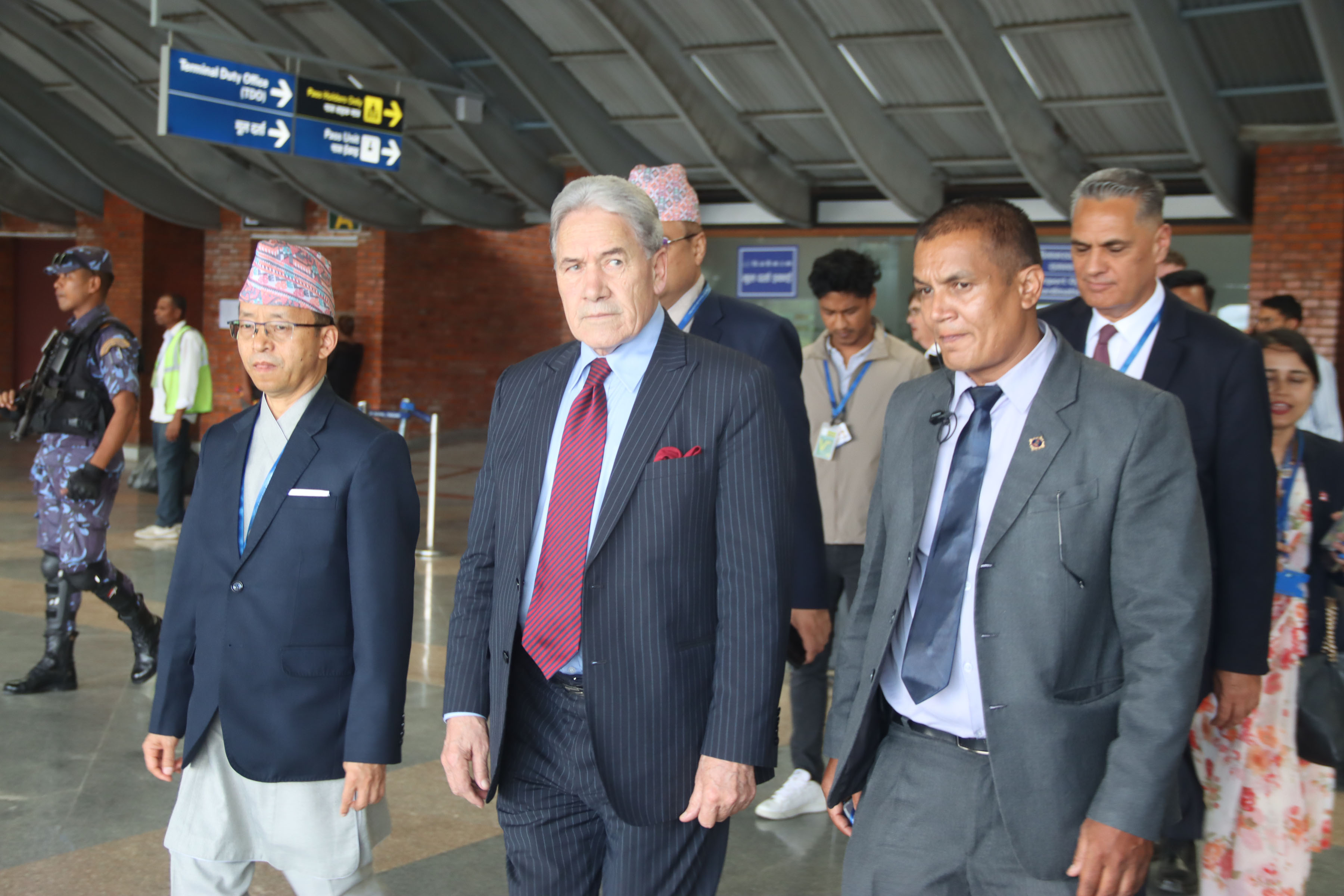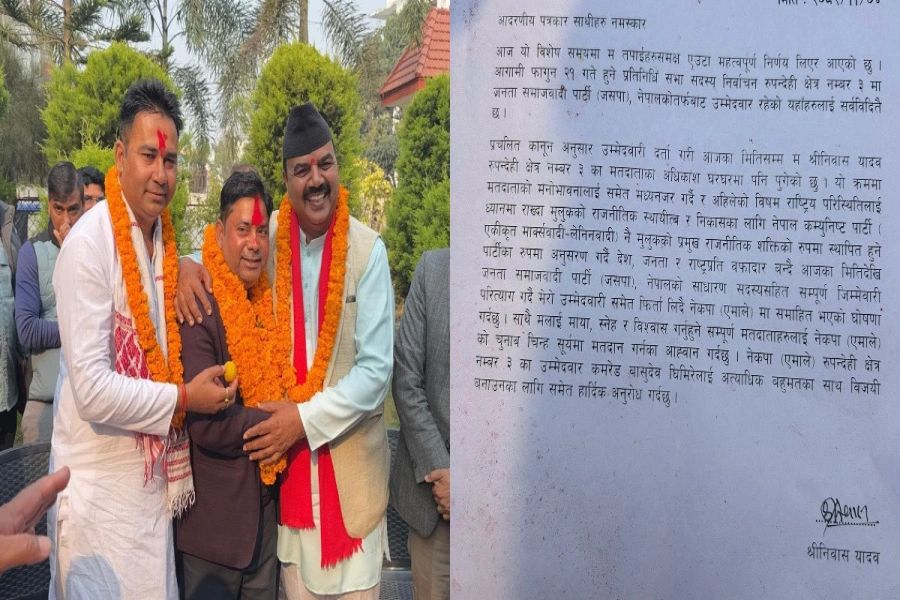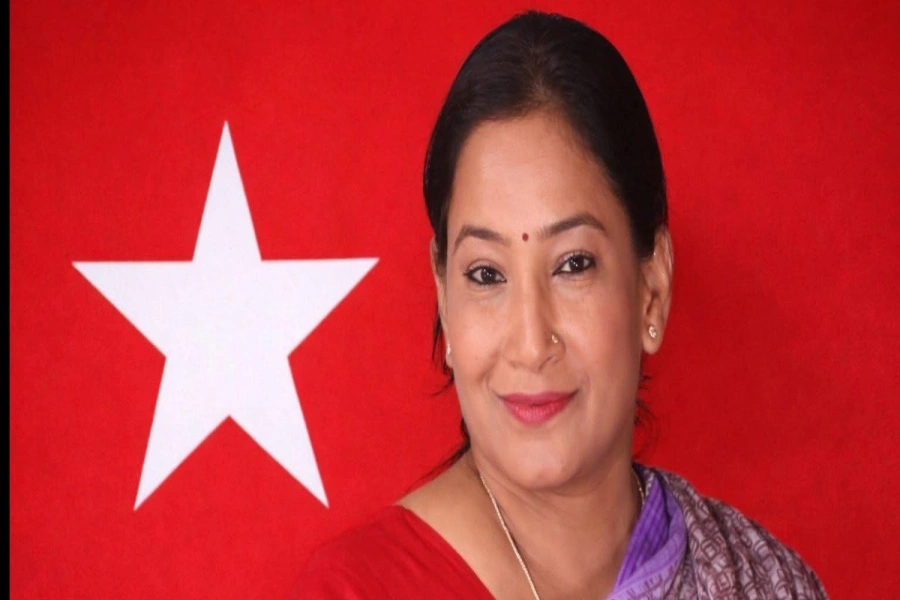ILAM, June 24: Identity politics that held sway in nine hill districts in the eastern part of the country at the time of the first Constituent Assembly (CA) elections in 2008 has now largely faded away.
With preparations underway for local level elections next week, none of the political parties contesting in these districts is using identity politics as a strategy to solicit votes.
Various political parties, after the success of the people's movement in April 2006, resorted to identity politics, with slogans for regionalism instead of a centralized system, and identity rather than economic viability. “It is hard to find such political parties now.
This clearly shows that regionalism and identity politics are no longer acceptable to people,” said Ilam-based political analyst and history professor Mohan Singh Thebe.
In May 2006, the Kirant Rai Yakthum Chumlung decided to press for a Kirant federal state with autonomous rights. This decision provided a basis for other political parties also to advocate identity politics. The Limbuwan Party was formed four months later.
But Limbuwan Party split up within a year and it is now on the verge of disappearing altogether. “The conclusion we can draw from this is that politics based on ethnic identity and extremist slogans are on the wane,” said Thebe.
Thebe went on to argue that the regional and identity-based parties in the Terai-Madhes should learnt from the eastern hill districts that they too will face the same situation if they fail to give up regional and identity-based politics in favour of issues related to social empowerment for people living in the region. “If we look at the rights that the local bodies have been guaranteed in the new constitution we can feel that the days of regional and identity politics are numbered ,” he further said.
Libuwan activists who used to enforce strikes and resort to vandalism demanding a Limbuwan state with the right to self-determination are nowhere to be seen. Thebe believes the demand for a Limbuwan state has already become weak, with most Limbuwan Party cadres now choosing to be part of mainstream political parties.
Limbuwan Party used to have influence right across the nine eastern hill districts including Ilam, Taplejung, Panchthar and Jhapa . But identity politics appears to have little or no influence in the region now. Thebe attributes this to the misuse of identity politics.
“The Maoists, who first resorted to identity politics, used it only to create anarchy. In the last 10 years, their existence has faded,” argued Thebe.
There was a trend of setting up political parties based on ethnic and regional identity following the success of the people's movement in 2006. The Maoists first played the ethnic and regional identity card and a number of other parties were also formed on the same basis, with funding from both local and international non-government organizations.
The Kirant Rai Yakthum Chumlung party even prepared a manifesto. But as the issue of identity was used for promoting extremist politics, it eventually failed to gain influence among the people.
Nepali Congress (NC) leader Khagendra Dewan alleged that those advocating identity politics gave priority to reservations rather than the empowerment of the community they fought for. People spent their entire creative lives demanding reservations.
“Their politics is over because of the wrong path they pursued. I have seen them returning to the mainstream parties like Nepali Congress and CPN-UML,” Dewan further said.
Traversing Ilam hills on bicycles





